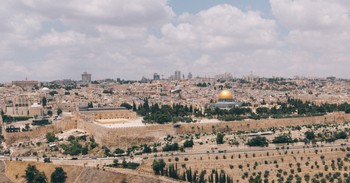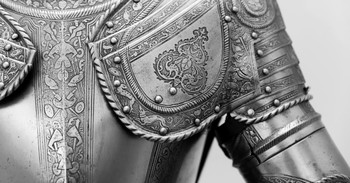
Afterwards, there were rumors of poison. 53-year-old Bonaventura, general of the Franciscans, seemed well enough when he came to the great council of Lyons. He preached twice and had a part in the negotiations between the eastern and western churches. But on this day, July 15, 1274, he died suddenly.
But why poison? After all, Bonaventura's holiness was recognized by everyone. Long before Bonaventure's death, the epic-poet Dante had already written him into Paradise. As head of the Franciscans, had not Bonaventura always been a mild leader? Still, he could be firm. For example, unhappy with Roger Bacon's speculations, he banned him from lecturing at Oxford.
Although Bonaventura probably died of plague, perhaps the battle within the Franciscan order had something to do with the suspicion of poison. The Franciscans were torn between the Spirituals, who wanted to continue the extreme poverty advocated by their founder, St. Francis of Assisi, and the Relaxti who wanted to relax the strict rule. Bonaventura sided with the Spirituals. Perhaps there was a motive there.
Pope Gregory X lamented his loss. He was pope in part because Bonaventura championed his candidacy. But when Gregory had sent Bonaventura a cardinal's hat, it is said that the scholarly Franciscan was found washing dishes. He had the delegates hang the hat on a tree until he was free to take it.
Honors and promotions were not what he sought. Rather, he meditated on Christ (as can be seen in the excerpts known as The Privity of the Passion) and he sought Christ, as is clear from a prayer he wrote to be recited after communion. It read in part: "May my heart ever hunger after and feed upon You, Whom the angels desire to look upon, and may my inmost soul be filled with the sweetness of Your savor; may it ever thirst for You, the fountain of life, the fountain of wisdom and knowledge, the fountain of eternal light, the torrent of pleasure, the fulness of the house of God; may it ever compass You, seek You, find You, run to You, come up to You, meditate on You, speak of You, and do all for the praise and glory of Your name..."
Bonaventura wrote many other things--some editions of his writings run to fifteen volumes. What he wrote, we are told, was unusually direct and clear for that era, full of spiritual insight and avoiding the endless niggles of the scholastics. His preaching was of the same caliber. For this reason, he was known as "The Seraphic Doctor" during his life time and was named a saint and a doctor of the church two centuries after his death. The people of Lyons considered him their patron.
Huguenots (French Protestants) burned his body during a raid on Lyons. The head escaped, but it was lost during the French Revolution.
Bibliography:
- "Bonaventura." Dictionary of Scientific Biography. Editor Charles Coulston Gillispie. New York: Scribner's, 1970.
- Bonaventure. "Prayer after Communion." http://www.ewtn.com/library/PRAYER/BONAVENT.TXT
- Bonaventure. The Privity of the Passion, in Richard Rolle's Minor Works. London: John M. Watkins, 1923.
- Cullen, Christopher M. Bonaventure. Oxford University Press, 2006.
- Eerdman's Handbook to the History of Christianity. Editor Tim Dowley. Berkhamsted, Herts, England: Lion Publishing, 1977.
- Endres, Jos Ant. Thomas von Aquin. Mainz: Derlag von Kirchheim, 1910. Source of the image.
- Fremantle, Anne, editor. The Age of Faith. Great Ages of Man. Time-Life Books, 1965.
- McKeon, Richard. Selections from Medieval Philosophers. New York: Scribners, 1930; p. 111 ff.
- Runes, Dagobert D. A Treasury of Philosophy. New York: Philosophical Library, 1945.
- "St. Bonaventure." The Catholic Encyclopedia. New York: Robert Appleton, 1914.
- Various encyclopedia and internet articles, including the Americana, Britannica, and the New Schaff Herzog Encyclopedia.
Last updated July, 2007.


